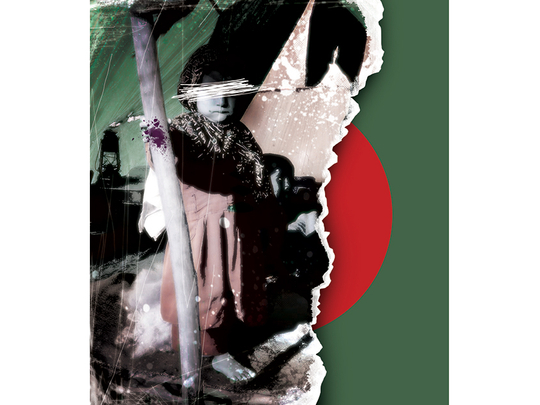
Bangladesh today is facing increasing pressure as thousands of Rohingya flee adjoining Myanmar to escape persecution and death. Their only hope is to find refuge in scattered camps along the border. But there are other Bangladeshi residents who have been living in squalid camps for decades. These are the Biharis, forgotten remnants of the Indo-Pakistan partition, and there are very few voices that bring their hapless conditions to the fore.
For more than four decades, they have been spread across Bangladesh in 66 squalid camps, each no bigger than a football field, with poor sanitation and shortage of running water. Camp conditions are miserable, and large groups of families are often forced to share their living area with animals. They have no rights, limited job options and few economic prospects. They are refugees. Although they did not desert their country; their country appears to have forgotten them.
In pre-independence India, they were a Muslim minority in the region of Bihar. At the time of partition in 1947, many moved to what was then East Pakistan. When civil war broke out between East and West Pakistan, the Biharis sided with the West. Subsequently, in 1971, East Pakistan became the independent state of Bangladesh, and these Biharis who had been loyal to Pakistan were denied citizenship because they were deemed as collaborators and had “supported the enemy”.
Their first choice was to leave the new nation and go to Pakistan. They expected to be welcomed, and they waited. Almost four decades later, they continue to wait in silence and despair. Pakistan initially denied them permission to emigrate, fearing a massive influx could destabilise the country. The legal limbo they find themselves in predicts an even more despondent future.
There have been a few groups that have tried to break free from this limbo and come up with a worthy solution. One of them was the Rabita Trust established in 1988 under the auspices of the then Pakistan president, the late General Zia-ul-Haque, and Dr Abdullah Naseef, the former secretary-general of the Muslim World League. They put forth a proposal to organise the repatriation of stranded Pakistanis and domicile them in the Punjab province of Pakistan. An estimated 40,000 homes were to be built and were to be freely allocated to those Biharis, with funding coming primarily through donations.
More than 3,000 destitute families were issued Pakistani ID cards back in 1992 and more than 1,000 housing units were built in the Punjab province in Pakistan to accommodate them. Unfortunately, funds were not sufficient and the constant political changes in Pakistan over the years slowly pushed this issue to the back-burner. Meanwhile, the camp dwellers suffer in silence.
The Pakistani Repatriation Council (PRC), made up of moral and dedicated individuals who want to correct this travesty of justice, has been highlighting the issue of stranded Pakistanis with every successive government in Islamabad. The council made the following suggestions:
n The government of Bangladesh should be included as a full member of the Rabita Trust. Notwithstanding the fact that the Bangladeshi government had recently announced that they would selectively issue national passports for those born in the camps, their presence in the Trust is essential.
n The Pakistani High Commissioner in Bangladesh should play an active part in ensuring the protection and security of these stranded refuges.
n The government of Pakistan should demand ‘refugee status’ from the United Nations High Commission for Refugees for these people to allow them to receive essential UN aid in the form of food, medicines, education and other basic necessities until their issue is resolved.
n Those families who were previously issued Pakistani nationality cards and who still suffer in the camps should be repatriated as a matter of priority.
n The Rabita Trust, frozen by former Pakistan president General Pervez Musharraf back in 2001 should be re-activated to allow the building projects to continue.
n The Organisation of Islamic Countries should include this matter on their agenda and persuade national and international aid organisations to extend necessary sustenance allowances until they are repatriated.
n The Islamic Development Bank, Asia Development Bank and the national banks of Pakistan must loosen their coffers to build an estimated 37.000 homes in the Punjab province where land had previously been allocated for the remainder of the stranded Pakistanis.
n The Gulf countries — seeing a huge demand for semi-skilled labour, owing to an unprecedented boom in constructions in the real estate sector — could also offer meaningful employment to these people.
Pakistan today faces many challenges, but it should protect the rights of all its citizens. While the PRC is actively promoting the cause of these destitute mortals, it cannot single-handedly right a wrong. As citizens of this world it is also our moral obligation not to leave these people stranded and forgotten.
Tariq A. Al Maeena is a Saudi socio-political commentator. He lives in Jeddah. You can follow him on Twitter: @talmaeena.







